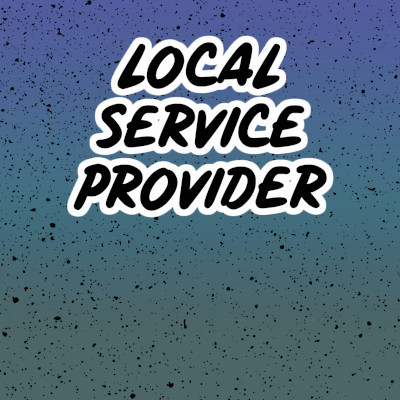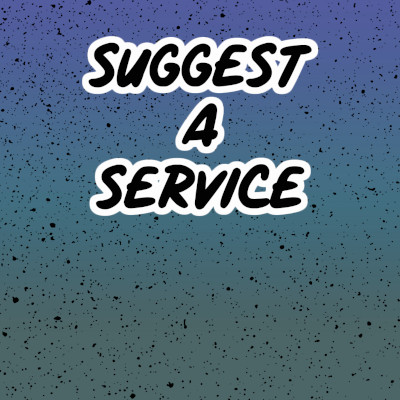Conflict

Anger management
Manage the moment!
Anger is a natural, healthy emotion but managing it well is important.
Anger management is like controlling a fire to limit a burn.
You need all the tools and equipment to keep the fire from speading to areas it shuld not go.
Instead of exploding in anger, identifying what triggers your anger and finding better ways to express it is crucial.
Trying to talk calmly or taking a time out break that has been previously agreed upon, can help you maintain healthier relationships.
By resolving conflicts and building understanding you will create a more fulfilling connection to the people you care about.
This will be good for your happiness and their happiness or emotional health.
Handouts: Home Improvement: Men in Relationship Jan 2024 J & Z Healthy Relationships
Responding to your partners anger
-use relaxation to stay calm
-use empathy and paraphrasing to understand what she is saying and feeling.
-use self-talk to stay calm - eg. “she has a right to feel the way she feels”, “she is not saying she doesn't love me, only that she is angry”, “I want to be in this relationship with her and I want to help her”, “if I get angry ist will push her away from me”, “she keeps telling me this over and over because she is afraid I have not heard her. I need to keep using my skills so she will feel heard”.
-if its really difficult for you to stay calm, indicate you need timeout, but tell her you will take time to deal with your feelings and want to resume the conversation when you get back.
Expect her to feel angrier and possibly accuse you of “running away” or not caring- so don't use this unless you recognize you are very close to becoming abusive, and be sure to tell her exactly how long you will be (maybe one hour at most).
If she says she would rather take time out herself, respect that and do not prevent her from leaving.
If you cant handle her anger, then you must at least respect her right to deal with that in what ever way is most helpful for her.
-use ‘I’ messages to describe how you are feeling. “I feel ________ when _______.” Do not blame, judge or criticize.
-RELAX, USE PARAPHRASING, EMPATHY AND RESPECT -USE POSITIVE SELF-TALK -STAY FOCUSED ON THE GOAL OF A HEALTHY RELATIONSHIP -ASK HER WHAT WOULD BE HELPFUL -USE TIME OUTS APPROPRIATELY, NOT TO AVOID HER ANGER -USE ‘I’ MESSAGES -DO NOT BE JUDGEMENTAL -STICK WITH YOUR COMMUNICATION SKILLS -DON'T GIVE UP!
Anger Mountain Exercise
-think of an incident when something happened and you got angry and ‘lost it’. -Describe the incident.
-What were your thoughts?
-What were your feelings?
-describe what happened as you got angrier? (go up the mountain in your description)
-things you could do to calm yourself down and give a full apology to the person involved.
Handouts: Home Improvement: Men in Relationship Jan 2024
Practice Positive self-talk;
This could be a rough situation, but I can handle it
Easy does it. Don't take anything too personally
As long as I keep my cool I will be ok
I don't need to prove anything to myself or others
Look for the positive and don't jump to conclusions
I don't need to win. I do need to be part of a solution that works for both of us.
My muscles are getting tight. Time to relax.
Take a deep breath and ask? “Is this worth the hurt feelings?”
I notice my self-talk is negative. I need to take care of myself.
I need to take time out. Go for a walk/ leave and come back later
The antidote to anger
Anger is your ally.
ANGER & RESENTMENT IN RELATIONSHIPS
https://www.constructionrehabplan.com/new-blog/anger-amp-resentment-in-relationships
Anger is a tough place to be as the consequences of our anger often affect so many people and really complicate life.
We all display anger differently.
From the major blowouts that sometimes become physical actions.
Then we have the quiet raging anger that just boils within us as we go quiet, even though our face and body language might tell a very different story.
The clenched fist and tense face is a dead giveaway.
Anger is normal. It’s what we do with anger that's important.
Learning how to redirect the anger or defuse the anger in that very moment of escalation so that we can take a step back.
Taking timeout and not being drawn when we get triggered is a skill we all need to learn … or pay the price for not learning it having to deal with the consequences.
Here are some strategies for managing anger and navigating the storms it can create:
Recognize and acknowledge your anger: The first step in managing anger is to be aware of it. Pay attention to the physical and emotional signs of anger, such as increased heart rate, muscle tension, or irritability. Acknowledge that you are feeling angry without judgment.
Take a pause: When anger arises, it's crucial to take a step back and give yourself some space. Take deep breaths, count to ten, or remove yourself from the situation temporarily. This pause allows you to gain perspective and prevent impulsive reactions that may exacerbate the situation.
Identify triggers and underlying causes: Reflect on the situations or events that trigger your anger. Is there a pattern or common theme? Understanding the underlying causes of your anger can help you address them more effectively. It could be frustration, fear, feeling disrespected, or unmet expectations.
Practice self-care: Engage in activities that promote relaxation and stress reduction. This may include exercising, practicing mindfulness or meditation, engaging in hobbies you enjoy, or spending time with loved ones. Taking care of your overall well-being helps build emotional resilience and reduces the likelihood of anger outbursts.
Develop healthy communication skills: Expressing your anger in a constructive and assertive manner can prevent misunderstandings and conflicts. Use "I" statements to express your feelings and needs without blaming others. Listen actively to the perspectives of others and be open to finding solutions that meet everyone's needs.
Use problem-solving techniques: Instead of dwelling on the anger, focus on finding solutions to the underlying issues. Identify the problem, brainstorm potential solutions, and evaluate their pros and cons. Collaborate with others involved to find mutually beneficial resolutions.
Seek support: If anger becomes overwhelming or consistently affects your relationships and daily life, consider seeking support from a trusted friend, family member, or professional counselor. They can provide guidance, help you explore underlying issues, and teach you additional coping strategies.
Practice empathy and forgiveness: Cultivating empathy towards others can help diffuse anger. Put yourself in their shoes and try to understand their perspective. Additionally, practice forgiveness, both towards others and yourself. Holding onto grudges or resentment can prolong anger and hinder personal growth.
Learn healthy coping mechanisms: Explore healthy ways to release or manage anger. Engaging in physical activities like exercising or practicing relaxation techniques can help release tension. Journaling, painting, or engaging in creative outlets can also provide a constructive means of expressing and processing emotions.
Handouts: Home Improvement: Men in Relationship Jan 2024
Anger Management
Two reasons why people get angry:
-They want something to happen that is not happening
-They want something to stop happening
Anger is a sign you need to take constructive action
Anger management is about problem solving:
-not being a slave to your emotions
-learning not to get angry very often or for very long.
*Three main ways to manage anger: *
**-Changing our thinking patterns (Belief)
Often our anger is caused by thinking the other person's behavior is intended to hurt us.
Need to manage our thoughts by a) examine the evidence:
What evidence do you have to support your view?
And b) Look for alternatives:
What other way could you view the situation?
Can you think of some other explanation for why the incident happened?
-Controlling our emotions:
Learning to relax: helps lower your anger arousal level.
When triggered takes longer to ‘travel’ before getting mad.
-Problem solving
Response to the situation needs to be directed at solving the problem.
Learning to communicate your feelings and position in an assertive kind way.
This means speaking honestly with care with self-respect and respect for others.
Three questions to ask yourself when feeling angry:
-What do I need to do to take care of myself right now?
(breathe, take time out, go for a walk, practice positive self-talk, get underneath the anger to discover my primary feelings…)
-**What do I need to do about the situation? **
(focus on what is important and true right now, represent myself clearly and openly, ask for what I need in a good way…)
-**How can I do that respectfully? **
( use respectful communication, take a time to cool down before I communicate , resist blaming the other person, choose your words carefully)
Handouts: Home Improvement: Men in Relationship Jan 2024 Adapted from Cooper-Morrissey
Self -talk matters
Talking yourself Up Creates chaos
“Talking yourself up” is self-talk that builds feelings of anger.
Talking yourself up moves you from feelings of being hurt or scared to bigger, less manageable feelings of anger or rage.
It can make a neutral situation bad, and a bad situation worse!
Some talk inside your head may sound like this:
-”Im not going to take this anymore”
“I don't deserve this type of treatment”
“Who do you think you are/” You think you are better than me?”
“How dare you!”
“She should have known better. Its her fault”
“You are right , but..”
“You have no right to tell me what to do1”
When you are talking yourself up you are probably:
-blaming
-assuming the worst
-accusing
-using black and white thinking
-rationalizing/ justifying / defending your angry behavior
Talking up Short term results:
-a false sense of power and control, of being in charge
-feeling self -righteous
-feeling vindicated
Talking up Long term results:
-saying and doing things you regret
-loss of trust and intimacy
-pain and loneliness
Talking yourself down - creating calm
Talking down Short term results:
-Feelings don't get unmanageable; anger doesn't take over
-Taking a time-out gives you an opportunity to identify your primary feelings (anger is a secondary feeling)
-No one gets hurt
-You dont say or do anything you regret
Talking yourself down Long term results;
-You have an opportunity to communicate your feelings
-You build trust and intimacy
-It is easier to stay calm next time
-You will learn how to respond rather than react
-You increase your self esteem
-You behave in a way that garners self respect and respect for others.
Disclaimer:
This website is for information only. It represents the unproven opinions / thoughts of various authors or collaborating partners.
This website and its content is not intended to serve as a substitute for professional medical or counselling advice.
BigJakeConnect Society and/ or associate organizations specifically disclaim any and all liability contained in or linked to this website.
A health-care professional should be consulted regarding your specific medical condition.
If you have a medical, mental health or other emergency, then reach out to the local emergency services helpline or hospital.
Copyright:
The contents of this website is subject to licencing and copyright. All rights reserved.
All webpages and all artwork has been minted as NFTs for exclusive use by BigJakeConnect Society and/ or their representatives.
No part of this website or content may be used in any manner whatsoever without the express written permission of BigJakeConnect Society and/ or their representatives, except in the case of brief quotations embodied in articles or reviews.
Updated: November 2023
Related Topics
Find Other Topics
General Information
Trending TopicsFind a category...
BJC start here Connecting Ready or Not? Our Struggles Coping Self-Reflection 7 Principles of living Conflict Life Transitions Mental Wellness Development Inner Exploration Personal Growth Community Taking Action Programs BigJakeConnect Book Resources YouTube Links General Book Resources BigJakeConnect Society ContactFind a topic...
Parenting & Co-parenting Love Site information Accountability Collective wisdom Communication Criticism Death Defensiveness Feelings Framing Friends Jealousy Life {love} bites Meditation Re-invention Relationships Secrets & lies Self-care tools The foundation Your story Alone Anger management Boundaries Change Contempt Denial Divorce Failure Friends help friends Inter-dependence Kindness Life's Journey Loneliness Respect Self-determination Smile More Triggers Vulnerability Bargaining Change Step 1 Compassion Conflict management Courage Depression Difficult decisions Emotional Pain Gratitude Habits Hubris Imagining Immigration Mediation New Beginnings Real men do cry Spirituality Stonewalling Stuck The BigJake guy Vacation time Abuse / hurting Acceptance Addictions Change Step 2 Community Control Culture Curiosity Disappointment Exploring Fear Honesty / trust Local Dads Men's Health Matters Pride Responsibility Separation Success Treasures Beliefs Brainstorming Change Step 3 Grief Guilt vs Shame Happiness Hope Humility Identity Mastering Plan ahead Power Relationship Pies Resilience Self - love Self-management Storytelling Team Activity AI Belonging Change Step 4 Emotional health Forgiveness Goals Healing Home Improvement Justice vs Truth Listening Motivation Next steps Normalizing Older adults Our Art Collection Playing Purpose Regret Sex & Dating (again) Society Services Values & strengths Empathy Shock Stress / Anxiety Volunteering
Connect Locally
Featured Services

Wellness Together Canada
BigJake hopes to connect all our local communities, programs and services.
Click here to log in to the service provider members dashboard.
Log InIf you are a service provider and would like to register and manage your service, click here to create a membership account.
Create Account






